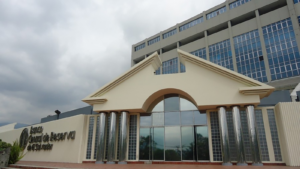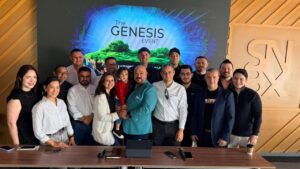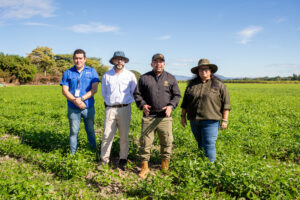
The Cámara de Comercio e Industria de El Salvador (Camarasal) joined forces with the Skills for Employment Project of the United States Agency for International Development (USAID) and DAI to implement the “Comprehensive Project for the Development of Employment Skills for People in Vulnerable Situations”.
The grant agreement (document that formalizes the support to carry out the project) was signed by Carlos Chávez, first vice-president of Camarasal and Caterina Valero, executive director of the Skills for Employment Project. Carlo Andino, senior project management Specialist and USAID Agreements Officer representative, participated as witness.
The main objective of this project is to promote access to the labor market for close to 400 youth and returned migrants, including members of the LGBTIQ+ community and people with disabilities, through technical training, internships and job orientation activities. Of these, close to 200 people will obtain new jobs or improve their current jobs. The project also seeks to contribute to the reduction of irregular migration.
“This is not just the launch of a project, it is the beginning of a path that will transform lives, open doors and generate a sustainable impact in El Salvador”, said Carlos Chávez, first vice president of Camarasal.
Over the next 18 months, Camarasal will implement a comprehensive plan based on five key components, including the establishment of strategic alliances with the private sector, technical and life and job skills training, internships, job placement, and the strengthening of Centro de Formación Empresarial (CFE).
This joint effort between USAID’s Skills for Employment Project and DAI and Camarasal is evidence of the dedication of both institutions to promote the social and economic development of El Salvador.
With this initiative, we seek to provide beneficiaries with the tools they need to develop their potential, effectively integrate into the labor market and become agents of change in their communities. Together, we continue to build a country with more opportunities and fewer barriers for those who need it most”, explained Carlos Chávez.







